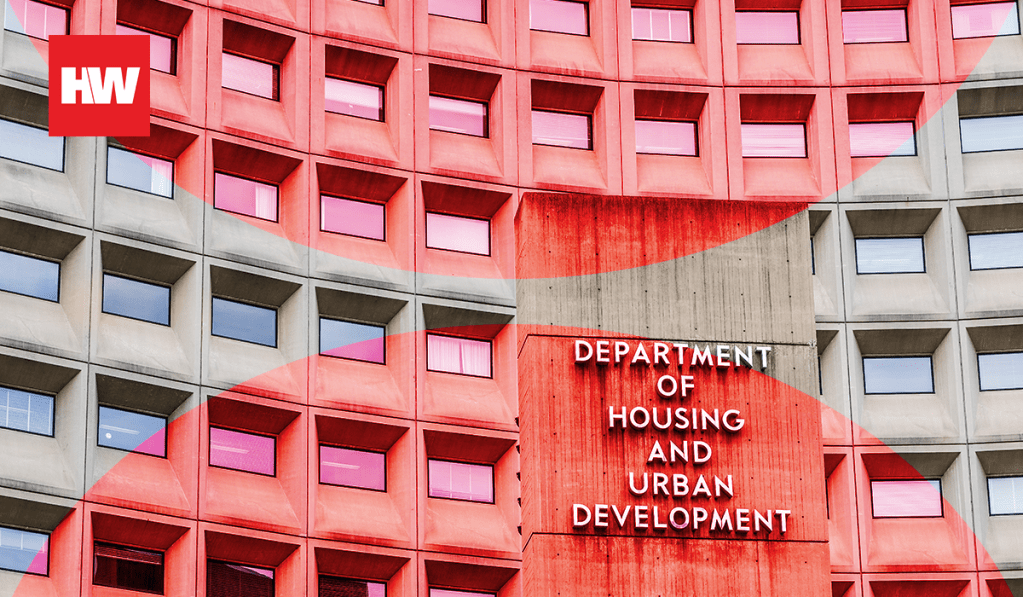The Department of Housing and Urban Development is planning a new rulemaking that Tribal entities say could threaten national down payment assistance programs.
A HUD spokesperson denied the department has any intention of eliminating the use of these programs with FHA-insured mortgages.
“HUD strongly believes in the value of down payment assistance programs provided by governmental entities,” a HUD spokesperson said.
The disagreement emerged after HUD, in a letter to tribal leaders in January, and a webinar a few days later, laid out five principles it would use to develop a rule on down payment assistance programs. One priority HUD listed is to ensure that DPA providers do not receive a financial benefit, which raised red flags for Native American tribes with down payment assistance programs.
Lopa Kolluri, principal deputy assistant secretary at the FHA, said during the webinar that any approach will include a “thorough dialogue with [Native American tribes].”
The overtures failed to convince tribes, including the Lower Brule Sioux Tribe; Rosebud Sioux Tribe; and the Cedar Band of Paiute Indians, which owns the CBC Mortgage Agency, parent of a nationwide program called the Chenoa Fund. The tribes voiced their concerns in a March letter to HUD Sec. Marcia Fudge.
Leaders of the tribes wrote that HUD had not met its legal obligation to consult with them before the proposed rule.
“HUD has not advised the aforementioned tribes of its plans regarding a proposed rule, or thoughts or concerns regarding the need for a proposed rule, that would have significant implications for all national, state, and local housing finance agencies, including the housing finance agencies owned by the tribes,” the letter read.
The tribal organizations argued the DPA programs do not pose undue risk to HUD, FHA or the Mutual Mortgage Insurance Fund. They said the elimination of their DPA programs would be “devastating” because of the impact it would have on disadvantaged borrowers. More than 39% of FHA loans had DPA in 2021, according to HUD.
Native American tribes with DPA programs, like the Chenoa Fund, worry that the rulemaking could revive Trump-era restrictions on the geographic scope of their operations. Down payment assistance programs that housing finance agencies operate are constrained to individual states. The Tribes’ programs, in contrast, are national in scope.
In 2019, the Federal Housing Administration issued a mortgagee letter that limited the scope of DPA provided by nationwide governmental entities. The Cedar Band of Paiute Indians challenged the move, and stopped the ML from being enforced on the basis that the implementation violated the Administrative Procedures Act.
For programs such as the Chenoa Fund, a rule limiting where it can operate would likely impact the program’s revenue stream.
According to Tai Christensen, director of government affairs at Chenoa parent CBC Mortgage Agency, the program makes money by selling loans to the secondary market. Rather than relying on government grants, as some housing finance agencies do, Chenoa uses the proceeds of the sales to fund the DPA program.
“We are self-funded, we don’t deal with grant money,” said Christensen. “Typically with most grant programs there’s a pool of money and once that pool is depleted they have to wait until they can allocate more money for DPA assistance and we don’t have those limitations.”
The murky past of DPA programs
The Housing and Economic Recovery Act of 2008 (HERA) banned seller-funded down payment assistance.
Policymakers blamed those programs for artificially inflating the cost of homes. Since then, the industry has been divided on their opinions of DPA programs funded by government entities.
U.S. Senator Patrick Toomey (R-PA), the ranking minority member on the Senate Banking Committee, sent a letter to Sec. Marcia Fudge in May 2021 urging the department to take action against “circular funding schemes [that] still continue to operate because of HUD’s inaction and refusal to see parallels between schemes of today and those of the past.”
Toomey said that borrowers who use DPA are charged an inflated mortgage interest rate, resulting in a higher payment from investors when the mortgage is securitized. That, in turn, results in a financial benefit to the provider.
Christensen, of CBC Mortgage, said that all federal housing finance agencies charge higher interest rates on loans with DPA.
Critics of the Tribes’ down payment assistance programs, including Toomey, have raised concerns that the loans may be riskier for FHA’s MMIF. Others have complained that DPA programs operated by Tribes, such as the Chenoa Fund, operate on a national basis.
In June 2019, HUD used the latter argument to try to limit the Tribal programs’ national scope in a mortgagee letter. The letter tried to establish that tribes may act in their governmental capacity only on their reservations or when working with enrolled members.
HUD at the time said that it has long sought to strike the appropriate balance between making FHA-insured mortgages available to qualified borrowers and “reducing programmatic risk.”
“HUD has taken the position in the past that every jurisdiction in which Chenoa operates must get approval from each government jurisdiction in which they do business,” said Michael Stegman, a nonresident fellow at the Urban Institute. “That’s virtually impossible if you are a national program and you have to get permission from every single local county, and of course, from states in which you operate in which you are not located.”
HUD’s Mortgagee Letter was ultimately withdrawn.
Kolluri said during the January webinar that FHA’s desire to “provide clarity regarding the permissible structures and operations of these programs and ensure that statutory requirements are met is not a new endeavor for us or for you.”






